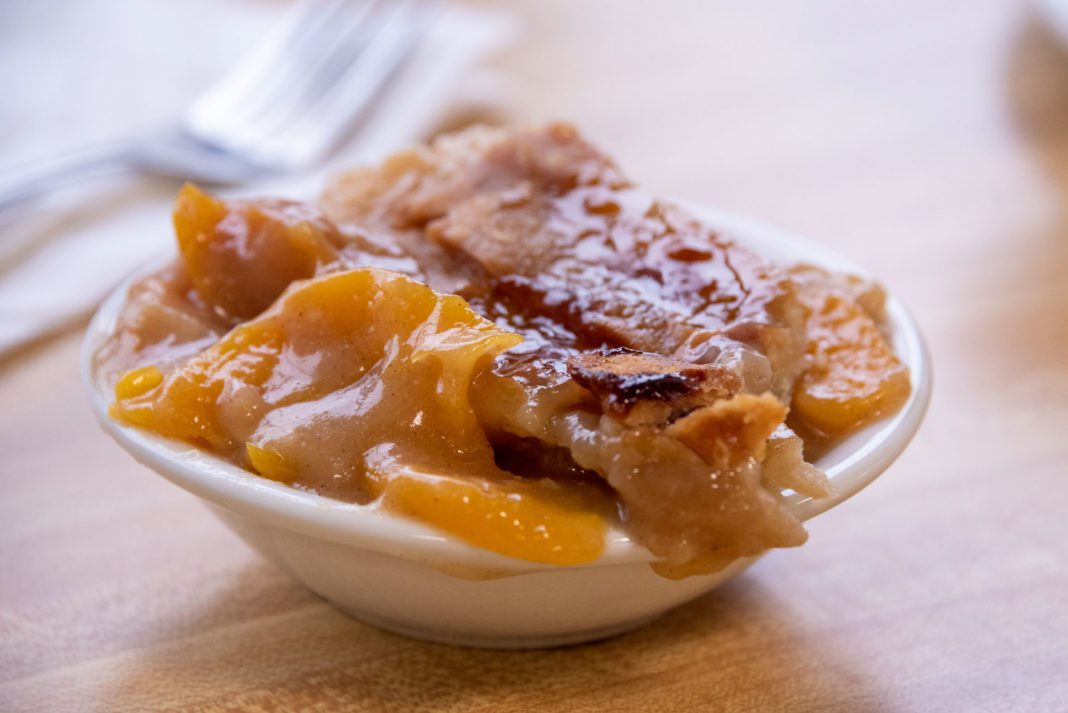Go east on Tulsa’s 36th St. North, past brown and stubbly fields, bales of hay neatly stacked and then, after crossing Sheridan, turn right on a snaky narrow road past freight depots and other airport outbuildings. There, low slung and easy to miss, a building next to a big hangar comes into view: it’s Evelyn’s Soul Food.
Inside, it’s upscale and spacious, with light green walls, floor-to-ceiling windows and, just beyond the hostess stand in a place of honor, a big framed photo of Evelyn Jefferson, mother to the chef, Wanda Jefferson Armstrong. You see her there by the cash register talking to a young man, the last customer of the day.
“I served your grandfather years and years ago, and then I served your uncle, and now I’ve served you,” she tells him.
It all started toward the middle of last century, on a plot of land which, technically a part of north Tulsa, was in fact a self-sufficient farm, where a young girl ate and watched and learned. Wanda Armstrong is very close to her childhood even today, and her face softens when she talks about that farm “out in the boondocks,” she describes. “We had pigs and cows and chickens and a garden. That garden had everything. Greens, tomatoes, okra, cucumbers, beets, corn. We never had a freezer, we never had to go to the store. My mother canned and preserved everything, from pickles to peaches to peas. If we needed meat, Daddy would kill a hog or a chicken. Mom cooked all the time, and that’s how we grew up, watching her cook.”
And so Armstrong learned at a very young age the value of using the finest, freshest ingredients from a local farm.
“Although we didn’t know that then because we had nothing to compare it to,” she says. “We just knew it tasted so good.”
She can’t always do it at her restaurant without raising prices so high that only the affluent can afford it, but she does her best.
“We peel our own yams, we boil our own potatoes, we get fresh produce whenever we can. You always have to come back to the basics, and that means fresh and natural.”
Armstrong didn’t simply copy her mother’s recipes – she’s too good a chef for that. Besides, there were no recipes.
“When I asked what you put in,” says Armstrong, “Mom always said, ‘Use your imagination.’ Well, I’m still using my imagination, to put my own spin on things.”
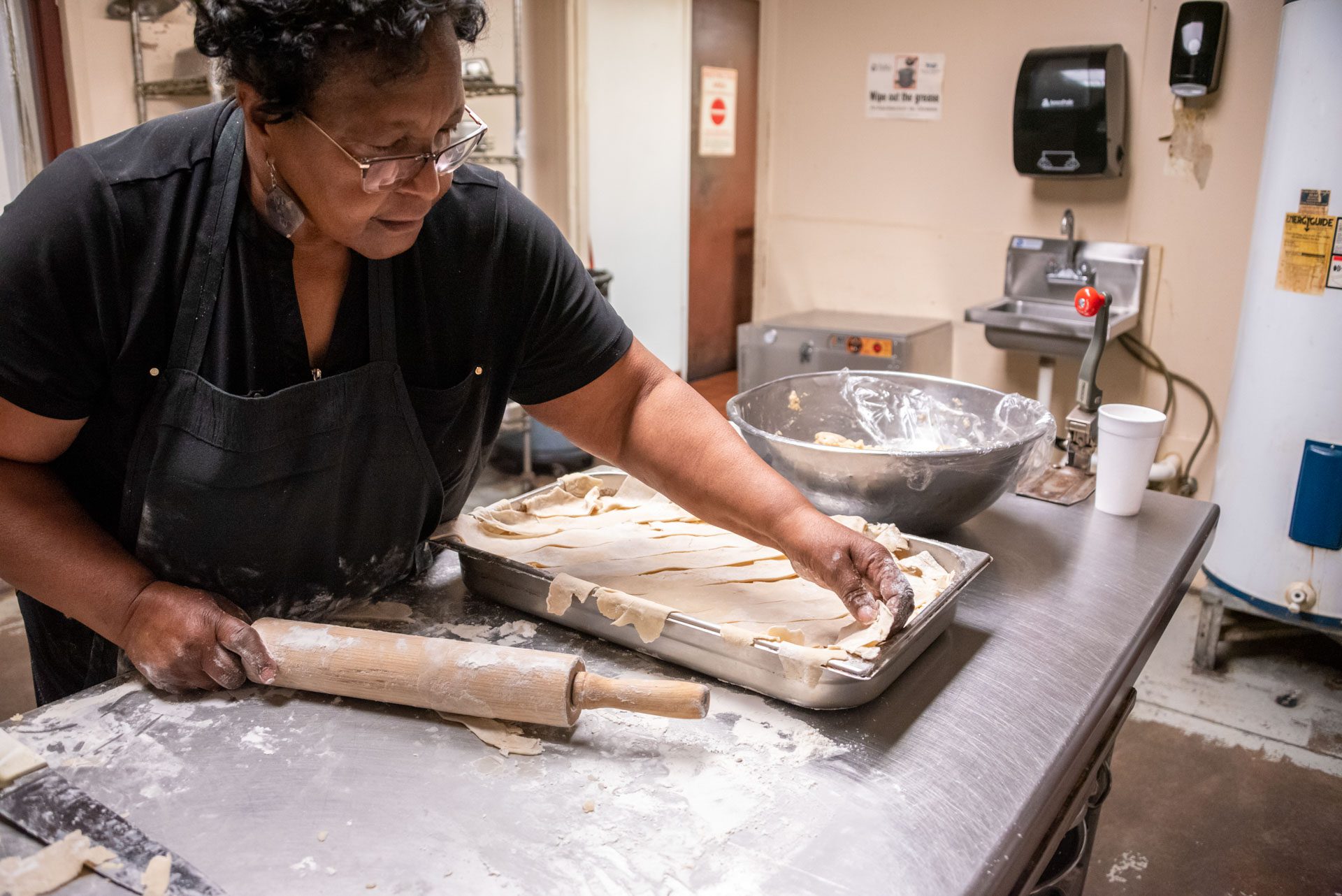
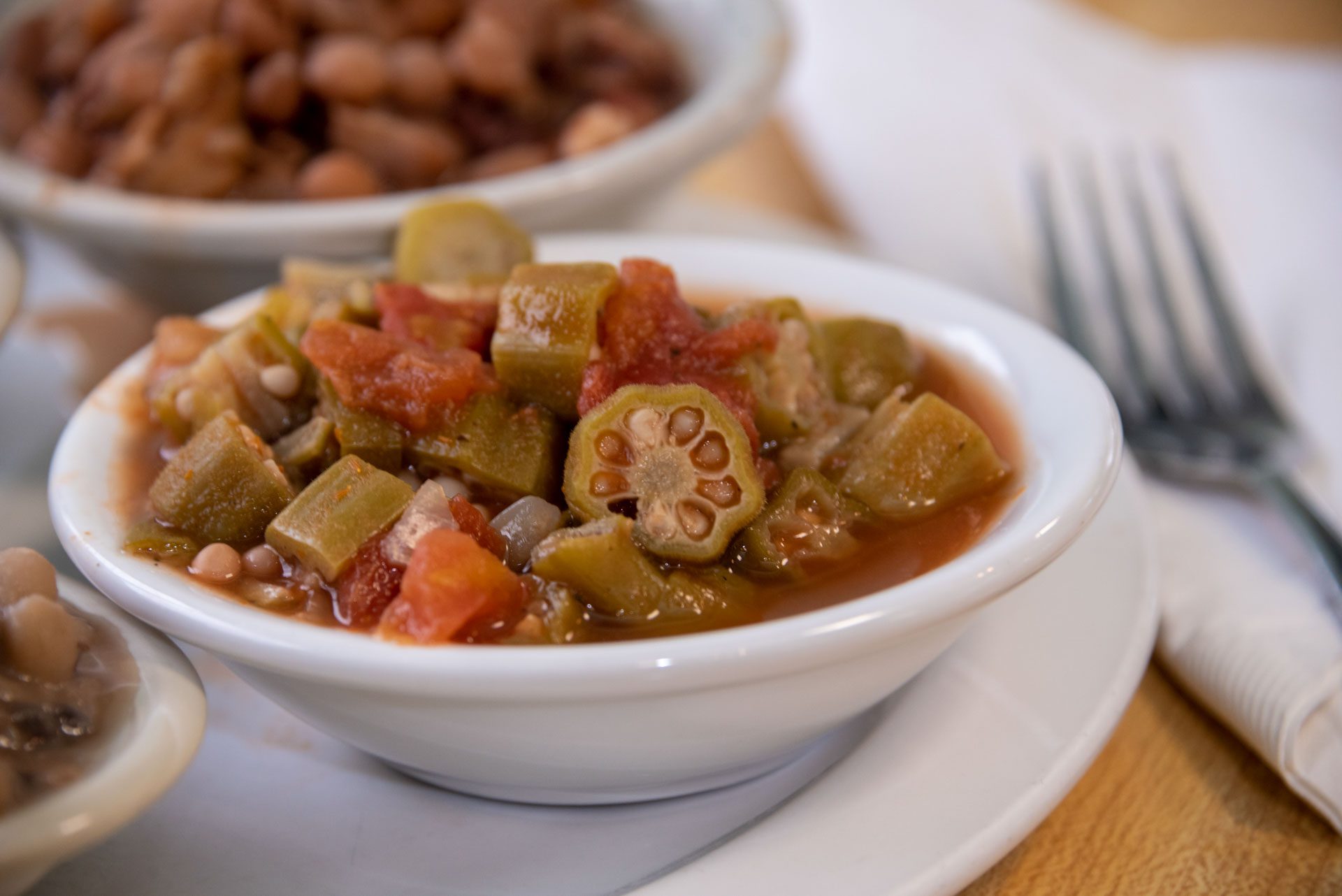
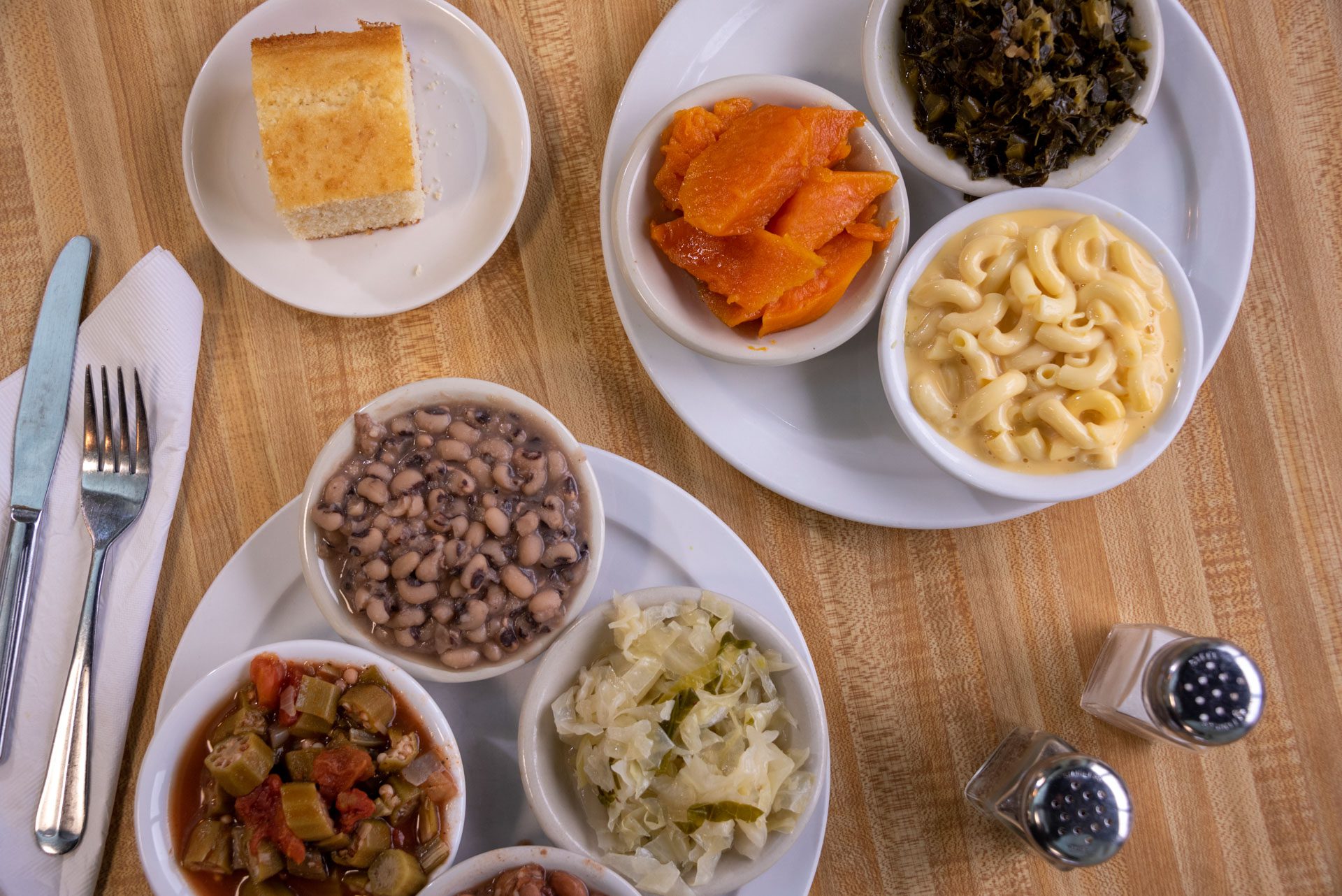
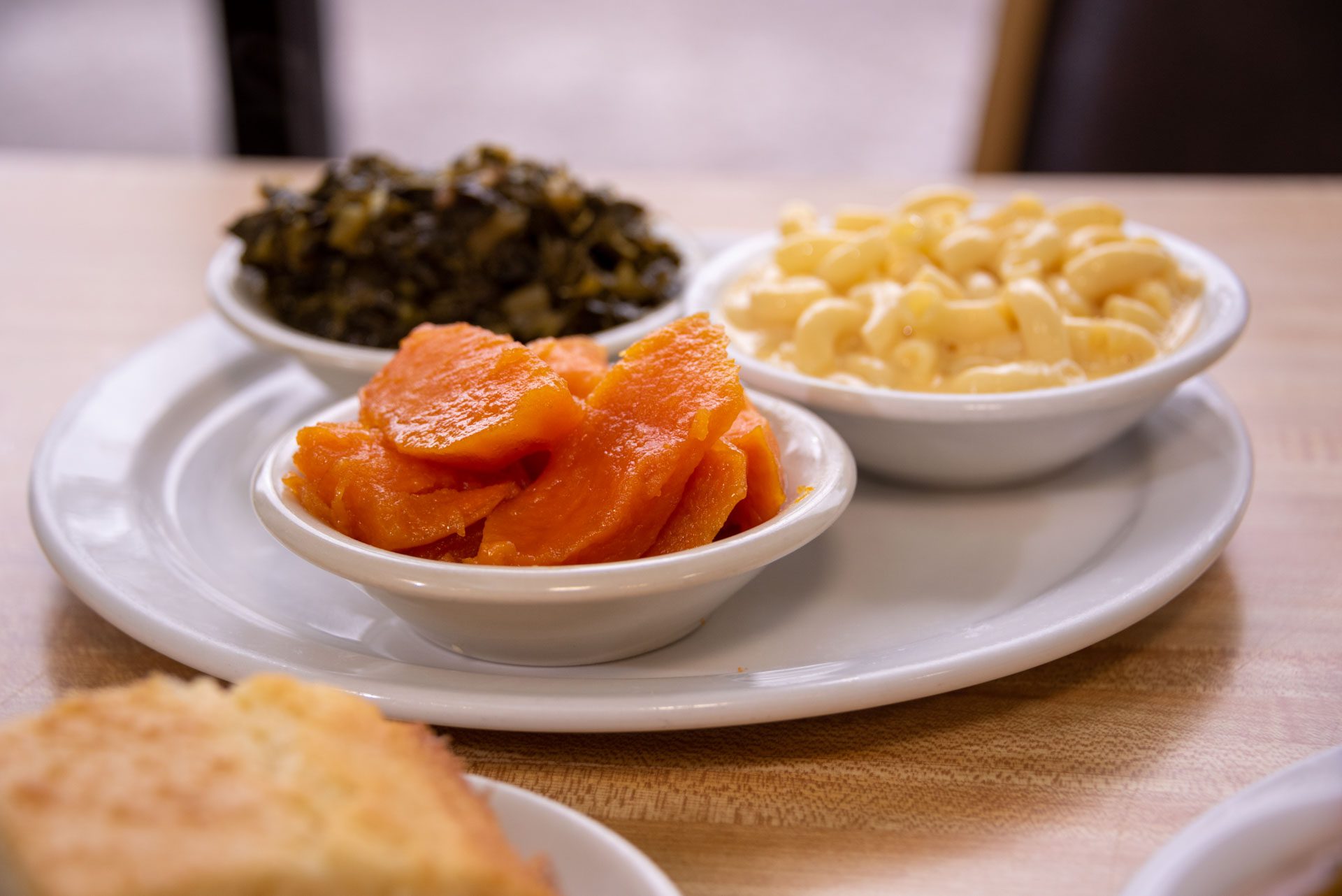
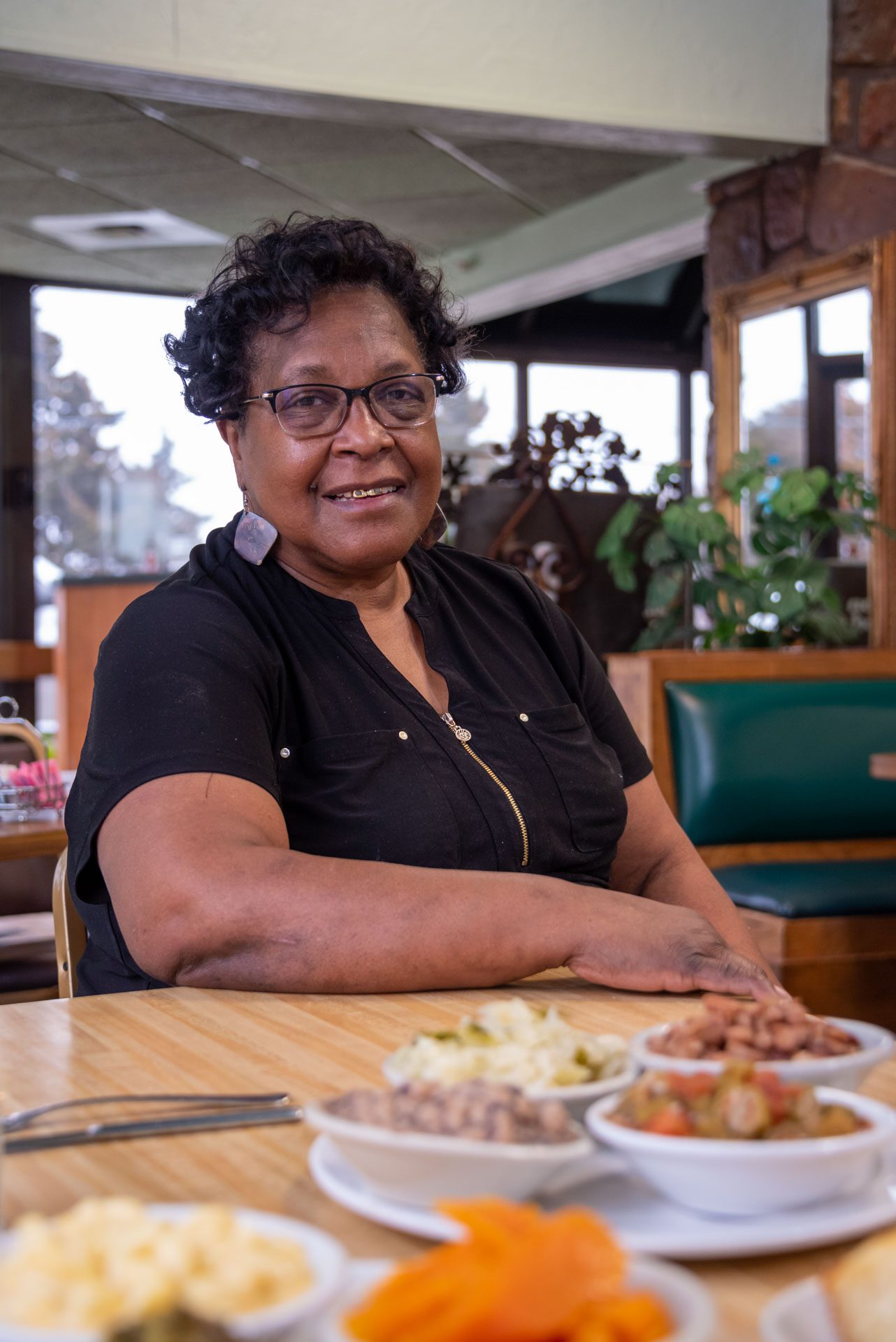
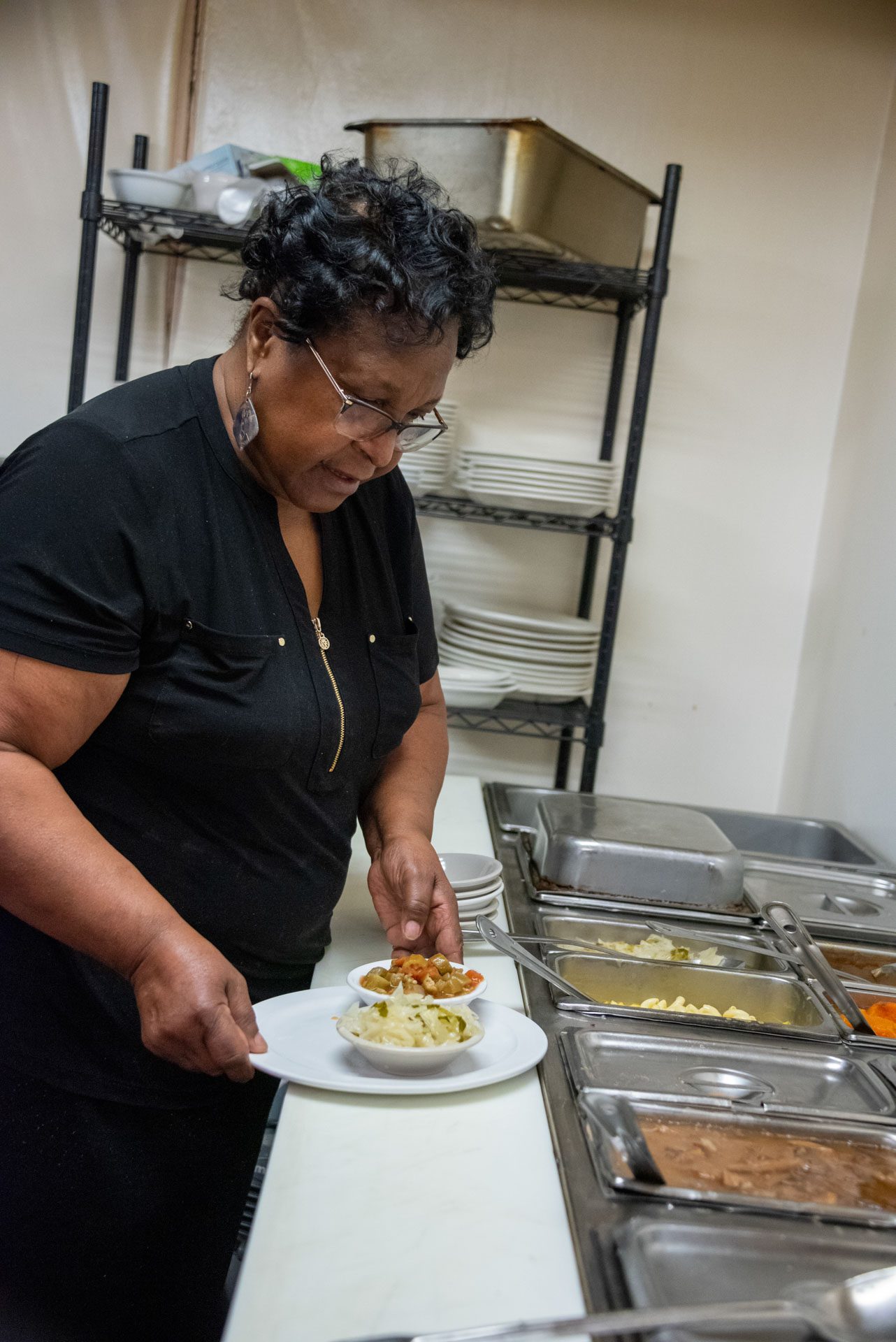
Photos by Stephanie Phillips
Her mother used lard, and a lot of it; lard rendered from a freshly killed hog, and I’m sure it tasted wonderful. But Armstrong has eliminated lard entirely, preferring to let the natural taste of the greens or vegetables speak for themselves. The French chefs who invented “nouvelle cuisine” in Paris, dazzling the world with their fresh, light, clear flavors, did exactly the same thing.
In fact, so many of the things top chefs preach today were being practiced by Armstrong or her mother when those chefs were still children: Getting the finest, freshest ingredients, preferably from local farms. Preparing it to bring out and highlight its natural flavor. Using as few ingredients as possible, finding perfection not in complexity but in simplicity. Cooking what’s in season, canning, pickling and preserving for winter. Using the entire animal, head to tail.
Admittedly, Armstrong has abandoned the canning and the head-to-tail approach.
“Grandma made us eat pig’s feet and ears,” says Sharla Walker, Armstrong’s daughter. “She was trying to kill us!”
She was joking of course.
“Grandma was in good health till her eighties,” Walker recalls. “That’s because she ate fresh and natural, no chemicals.”
Armstrong continues: “I taught my kids to cook, and then my grandkids,” says Armstrong. “They say, ‘We want to do it like you do it!’ and they’re good cooks, so good they know to put their own spin on things, and I encourage that. But we always come back to the basics: fresh and natural.
“I feel sorry for kids today who grew up on fast foods; all they know is potato chips in a bag. Of course, you don’t just throw good ingredients in a pot and think that will do the job. There’s still an art to how you cook. Sometimes my customers say, ‘Oh this tastes just like my momma’s,’ and that makes me feel good, makes me know I’m still doing it right after 45 years.”
Note: In late February, Armstrong was named a semi-finalist for the James Beard Foundation’s category Best Chef: Southwest.






















